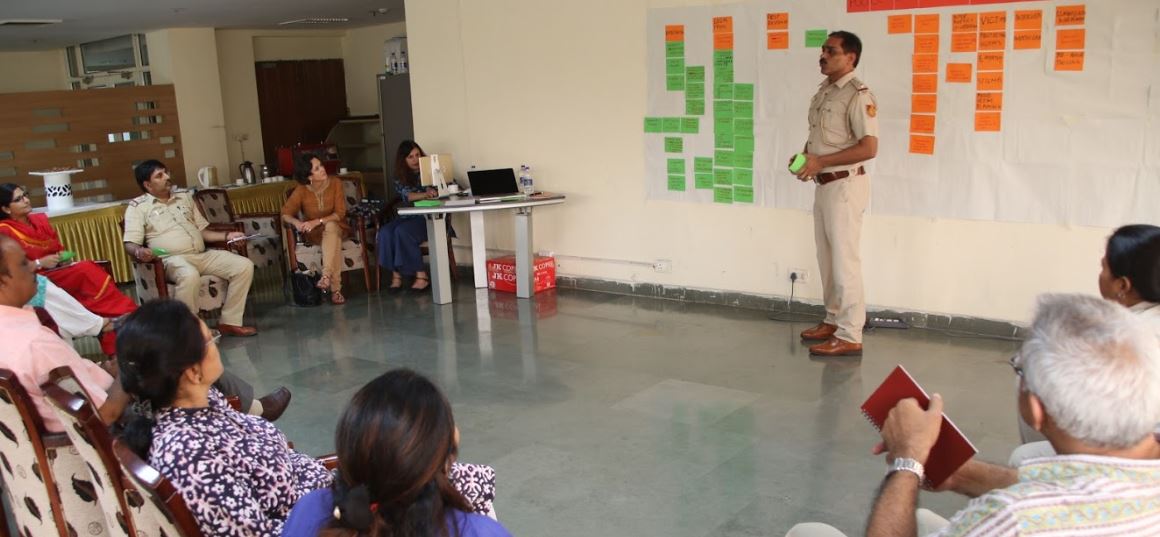Project Summary
The project will improve access to justice, rights and protection for women and girl victims of violence in Delhi, Haryana and Punjab. This will be achieved through knowledge transfer, partnership and training police officers and lawyers on how they can more appropriately and effectively deal with these cases and secure justice for victims and thus prevent them from dropping out of the process during the early stages of the criminal justice system.
The training will raise awareness and understanding of the barriers to justice for victims and strategies to tackle associated issues, with the aim of preventing victims from pulling out of the criminal justice system. Through this process a knowledge transfer and stakeholder network would be established for long-term sustainable training by criminal justice agencies. Through training we hope to create empowered and learned police officers and lawyers who have the ability to perform their duties more effectively, without prejudice and discrimination and with a greater understanding of how working in partnership with other practitioners and agencies in the areas can secure justice for victims. As a consequence of this, the project will improve operational practice and prevent fewer victims from pulling out of the criminal justice system, which will contribute to addressing the limited impact of the government’s recent legislation to deal with violence against women and girls.
Hence, this project aligns with the Magna Carta Fund for Human Rights, objective 1 and where the proposed project seeks to ‘uphold universal rights, democracy, and the rule of law as key building blocks for more secure and prosperous societies’, thus increasing equality and non discrimination, improving institutional protection against discrimination and increasing access to justice, rights and protection for women and girl victims of violence.
We have established links with key stakeholders and confirmed core implementers in India who have experience in working with police officers, lawyers and the judiciary. There will a strong framework and mechanism for supporting this partnership development. The UK implementers see their role as facilitators in this process where we will utilise our knowledge and expertise of multi-agency partnership working to establish meaningful, empowering networks that take the project over and deliver long-term.
We have chosen three key states to work in. Delhi was chosen as it has received global attention of high profile cases, such as the gang rape in 2012 and subsequent cases involving small girls in 2015, which makes it prime focus for this project. Both Haryana and Punjab are seen as having significant gender-based disparities, which severely contributes to women and girl victims of violence not accessing and securing justice. There is much more work to be done in the area of supporting women and girl victims of violence in the chosen states.

